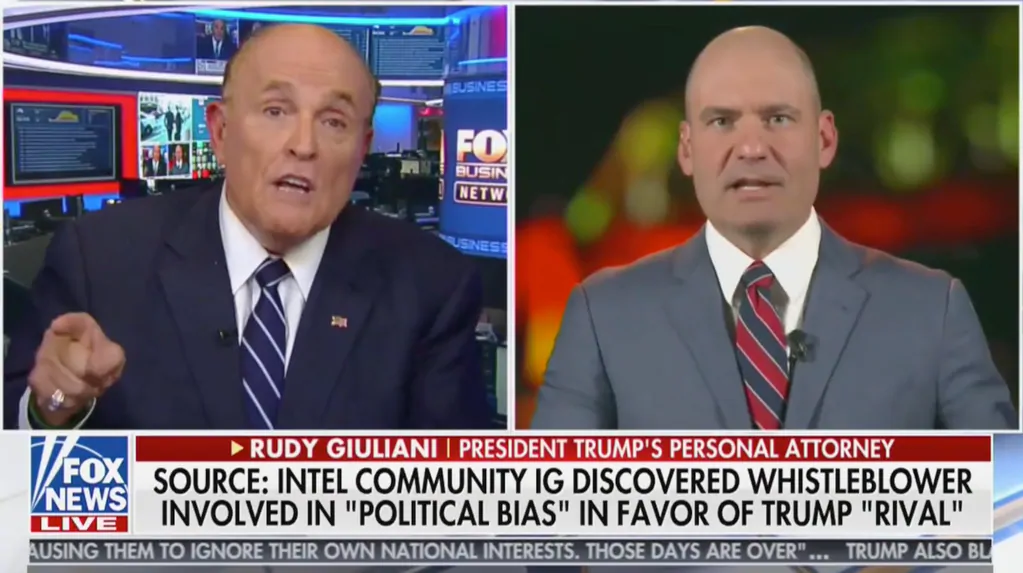#UkraineGate and International Order

My co-author, Alexander Cooley, has a new post over at the website for our forthcoming book, Exit from Hegemony. The post explores how the key events that have led to the impeachment inquiry into Donald Trump—from those of #RussiaGate to #UkraineGate—are all tied up in great-power contestation over international order. This is true even of the wacky adventures of super karate death lawyer, Rudy Giuliani.
An excerpt:
In fact, both #RussiaGate and #UkraineGate, as well as the Kremlin’s support for Trump during the 2016 election, have their roots in the 2014 Ukraine Crisis, which froze over US-Russian relations and led Washington to impose costly sanctions on Russia. In other words, the developments currently threatening to cripple the Trump administration are international in character and closely connected to dynamics we examine in Exit from Hegemony—especially contestation over international order and related competition for the allegiance of weaker states.
Plenty of long-term causes contributed to the 2014 Ukraine crisis, but its proximate origins can be found in a tussle between two geo-economic projects, one led by Russia and the other by the European Union (EU).
In the period before the crisis, the EU was, as part of its Eastern Partnership Initiative, negotiating a Deep and Comprehensive Free Trade Area (DCFTA) with Ukraine. The successful conclusion of the DCFTA would have given Ukraine greater access to the European market and meant its adoption of many EU standards. At the same time, Russian President Vladimir Putin pushed for Ukraine’s inclusion in a competing Eurasian Economic Union (EAEU)—an emerging regional organization aimed at promoting Russian-led economic integration among post-Soviet states.
President Yanukovych indicated an initial willingness to sign the EU agreement. The Kremlin, for its part, began to raise concerns about the DCFTA in 2013 but did not, according to EU diplomats, voice major objections during routine consultations. This led many to neglect warning signs, including Armenia’s decision, under Russian pressure, to choose the EAEU over a DCFTA earlier that year.
As negotiations continued, Moscow increased pressure on Kyiv to abandon the DCFTA process. Russian President Putin used a number of carrots and sticks, including an offer of discounted Russian gas and to purchase up to $10 billion of Ukrainian government bonds. On November 21, 2013 Ukrainian President Yanukovych announced that his government would not agree to a DCFTA, prompting demonstrators to gather in Maidan square in the capital of Kyiv. The protests soon became directed at the regime itself. They triggered a series of events that culminated in Yanukovych fleeing the country in February of 2014. In response, Russia invaded and annexed Crimea. It then deployed well-rehearsed tactics in support of separatists in Ukraine’s eastern provinces.
Read over there, comment over here.
